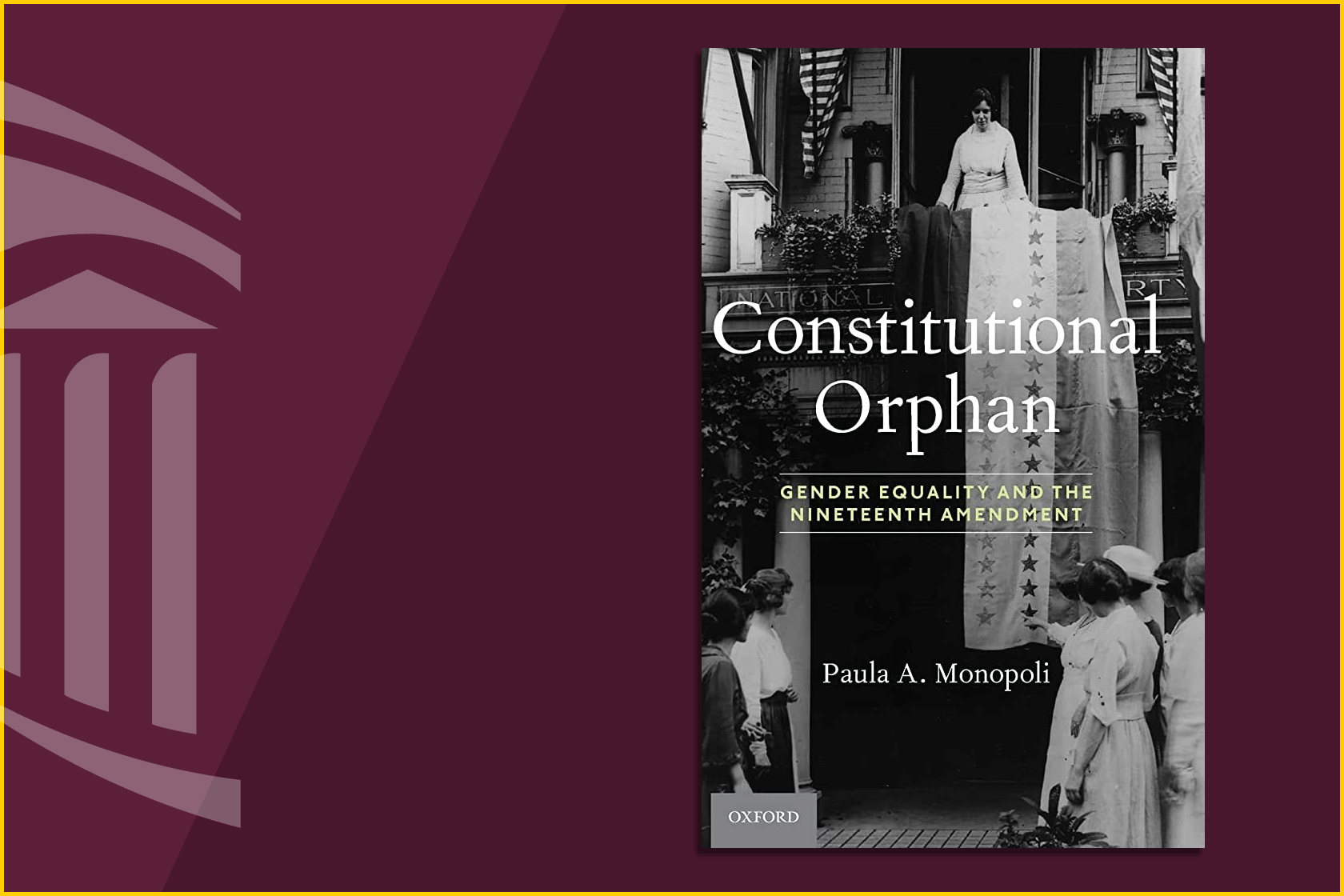As the nation marks the centennial of the 19th Amendment this summer, Paula Monopoli, Sol & Carlyn Hubert Professor of Law, has published a new book, Constitutional Orphan: Gender Equality and the Nineteenth Amendment (Oxford University Press). Monopoli, who is at the vanguard of scholars exploring the amendment and its impact, blends legal theory and original historical research to investigate the amendment’s implications for federalism, the scope of women’s citizenship, and the constitutional definition of equality.
“In this path breaking new book, Paula Monopoli bridges conversations in history and law to ask why the Nineteenth Amendment has been overlooked and become a ‘Constitutional Orphan’ in the Constitution’s interpretation,” writes Yale Law School Prof. Reva B. Siegel. “. . . Her magnificent recovery of this history will enable the Amendment’s more robust and intersectional interpretation and enforcement in the years ahead.”
Race, gender and class converged to shape the 19th Amendment as law in the decade after its ratification, explains Monopoli, asserting that white suffragists’ failure to support Black suffragists who were denied the vote in southern states through literacy tests, poll taxes, and intimidation, paved the way for the 19th Amendment to be undertheorized in the courts. “The development of the 19th Amendment and the ratification of the Equal Rights Amendment were both affected by this moral and strategic failure and by the divisions among former suffragists about what equality meant,” she says.
Reflecting on lessons from this post-ratification history, Monopoli emphasizes that coalitions are essential to successful social reform movements and that a more robust application of the 19th Amendment to cases being brought against voter suppression today, including voter ID and early voting laws, could address the disparate impact on women that these laws have, especially on Black women. The gender gap in pay, the disproportionate responsibility for childcare borne by women, and the fact that women are far more likely to have name changes during their lives, all contribute to the heavier burden of these voting laws on women. “Through our scholarship and by surfacing the lost history around the constitutional development of the 19th, we can build the case for courts to interpret the amendment in a more robust way today as an effective tool against voter suppression,” argues Monopoli.
Monopoli is founding director of Maryland Carey Law’s Women, Leadership, & Equality Program, the first and only program of its kind in the country. Since its inception, the program has generated more than 40 scholarly papers, which have been downloaded more than 20,000 times by scholars, judges, and practitioners around the world.
She also holds an appointment as a visiting scholar at the Møller Institute, Churchill College, University of Cambridge.
This summer, Monopoli was selected to receive the Baltimore Bar Foundation’s 2020 Fellows Award, presented to an individual for exceptional contributions in furthering the education and understanding of the role of law in our democratic society. She will discuss Constitutional Orphan during an installment of Maryland Carey Law’s faculty webinar series on Sept. 9.

